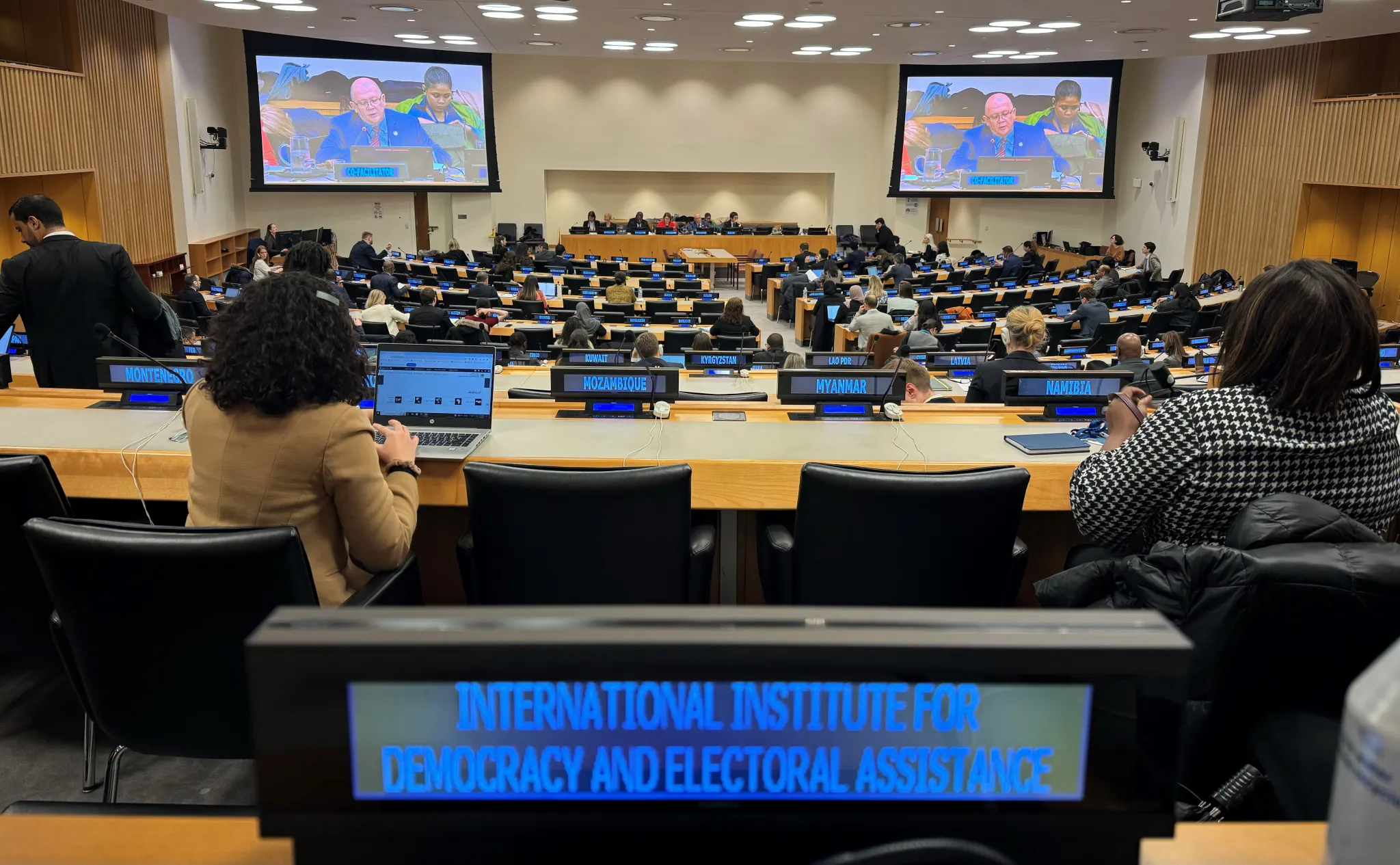Informal Consultations on Youth and Future Generations for the Summit of the Future (Statement)

Informal Consultations on Youth and Future Generations for the Summit of the Future
11 December 2023
New York, United Nations Headquarters
Statement by the International Institute for Democracy and Electoral Assistance (IDEA)
Excellencies,
We would like to thank the co-facilitators of Germany and Namibia for the opportunity to provide inputs to this consultation on youth and future generations, in support of the zero draft for the Summit of the Future.
International IDEA is pleased to see the issue of meaningful youth engagement on the policy agenda of the Summit of the Future. No Summit can call itself of the future, if it doesn´t place young voices and the interest of young people at its core. We would like to acknowledge the Secretary-General’s policy brief on Meaningful Youth Engagement in Policymaking and Decision-making Processes and express our full support to the thoughtful analysis and recommendations that it provides.
As an intergovernmental organization with the mandate to advance democracy worldwide, we fully concur with the view that young people are drivers of both innovation and social change. We have seen this globally in recent years, as young people come out on the streets to demand change and transformative action to address the critical challenges of our time, like climate change, racial injustice, and gender equality. Young people challenge the status quo and bring new ideas, approaches and solutions to solve the world’s most intractable problems.
As agents of change, young people are central to healthy and vibrant democracy in the present. They are also the leaders of tomorrow. But, as the Secretary-General’s policy brief notes, they are too often absent from formal political decision-making processes and institutions. According to the IPU, while people under the age of 30 make up half the world’s population, they are only 2.6 percent of the world’s parliamentarians. Much of this gap is attributable to exclusion, discrimination, and unequal access to resources. But some of it is a choice. Young people tend to trust less in political parties, and often opt for other informal channels of political engagements, such as protest movements. And while social mobilization can certainly drive political change, the absence of young people from formal democratic processes undermines the quality of democracy in terms of representation, participation and decision-making. Crucially, their absence entrenches democracy’s bias towards the short term, to the detriment of its ability to address long term issues on which young people have the greatest stake.
We would therefore like to reinforce the Secretary General’s recommendations with the following points:
First, to enable more youth engagement in democratic processes, including in elections, we encourage Member States and political parties to prioritize the political participation and representation of youth at all levels by ensuring they are given the resources, incentives, spaces, and structures to participate in formal politics. We also urge Member States to be cognizant of inequalities among youth and ensure that marginalized young people are given equal chances to participate in the political process. International IDEA stresses the need for all governments and multilateral bodies to recognize young people as equal partners in all aspects of decision-making and provide them spaces to genuinely influence policymaking.
Second, our analyses have found that civic education can help increase electoral participation later in life when it starts from a young age, includes engagement both inside and outside of schools, and is supported by political parties that provide space for young people. Civic education and early political engagement also provide young people with theoretical and practical tools for democratic leadership. Therefore, we encourage Member States to promote civic education as part of school curricula and to open up spaces for young people to engage politically.
International IDEA reiterates that full representation and participation of young people in political processes are essential to ensure a more democratic, fair, inclusive, and participatory world for current and future generations. We therefore urge that the political representation and participation of youth is placed at the forefront of the agenda of the Summit of the Future.
Thank you.
